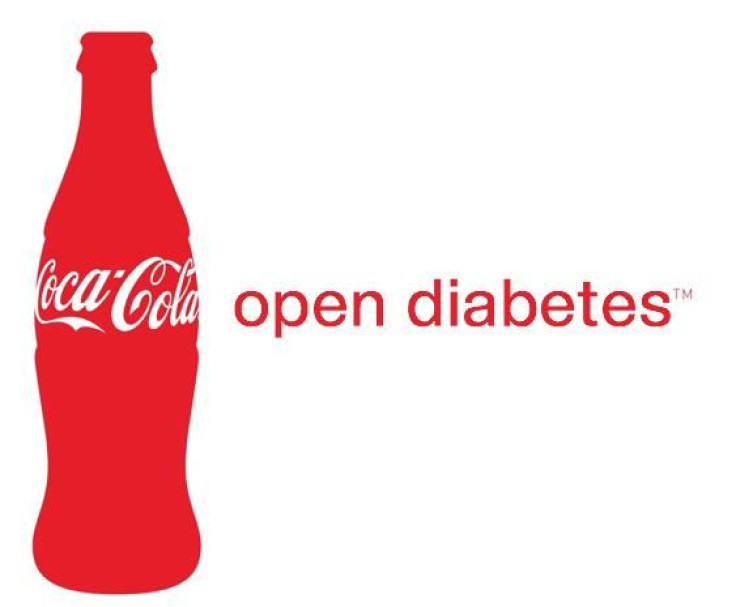Nick Jonas Blasts Crossfit For Coca Cola Tweet: Do You Know The Difference Between Type 1 And Type 2 Diabetes?

It seems that Crossfit and teen pop idol Nick Jonas have declared war on one another over a tweet depicting a Coca Cola bottle.
The hubbub started this Tuesday when Jonas came across an earlier Monday post made by Crossfit, a fitness company known for developing and promoting intense exercise regimens, on their Twitter account.
The company’s tweet displayed an faux advertisement for Coca Cola alongside a quote from their CEO, Greg Glassman. "Make sure you pour some out for your dead homies," Crossfit quoted Glassman as saying, while the ad pasted "Open Diabetes" in red lettering next to the aforementioned Coca Cola bottle.
"This is not cool. Please know and understand the difference between type one and type [two] diabetes before making ignorant comments," Jonas, a Type 1 diabetes sufferer, wrote on his Twitter after quoting Crossfit’s post, "Sensitivity to all diseases, and proper education on the cause and day to day battle is important."
Crossfit replied on Twitter that they were perfectly aware of the difference between the two, and began retweeting posts that showed Jonas endorsing Coca Cola in the past. "Please know that when we point to big-soda products causing diabetes, we are referring to Type 2 diabetes," the company clarified on an accompanying Facebook post. "We want to be transparent concerning our efforts to spread awareness about what's causing the 95 percent of U.S. adult Type 2 diabetes cases and how Type 1 diabetics can avoid developing Type 2 diabetes."
Which begs the question: Just what is that difference, and why are those like Jonas so angry when people confuse the two?
One Of These Things Is Not Like The Other
Diabetes, no matter which type, is a complicated medical condition. But at the heart of it, it’s best understood as a functional breakdown of the process that maintains proper glucose levels in the body. This breakdown happens because of the unusability of the hormone insulin, produced by the pancreas, which moves glucose from the bloodstream into your cells, where it's converted into energy.
In those with Type 1 diabetes, their immune system attacks and destroys the cells that make the hormone, so they’re permanently insulin-deficient. In order to control their levels of blood sugar, they need to continuously and artificially adjust the amount of insulin they pump into their bodies. Though the condition usually occurs early on in life (hence the old moniker of juvenile diabetes), it can remain undetected for quite some time. While we don’t understand its exact cause, we do know it’s almost certainly genetic in nature, though unknown environmental factors may also spark its onset.
Whereas for Type 2 sufferers, the body either stops producing as much insulin as before or begins to stop responding to the presence of insulin, which in turn can prompt the pancreas to overproduce insulin to the point of exhaustion. There’s likely also a genetic component to the risk of developing Type 2 diabetes, but it’s definitely known that certain environmental factors, like excess sugar consumption or sedentary behavior, can increase that risk.
That’s why proper management of the condition (and glucose levels) requires the avoidance of unhealthy foods and increased physical activity alongside medication. Insulin shots also become regularly utilized as the disease progresses in severity. And as Crossfit’s Facebook post noted, Type 2 cases make up about 90 to 95 percent of diabetes diagnoses. (Pregnant women can develop their temporary version of diabetes, when their bodies produce too much glucose for their insulin stores to manage)
Jonas’ anger likely stems from the perception that people assume those with Type 1 diabetes came down with it as a result of the lifestyle choices they made. It’s a displeasure that others with Type 1 have voiced before. "I become infuriated with the generalization of my chronic illness." wrote Brittainy Braniff, the then Community Outreach Director of InvisAbilities, a Canadian charity that “promotes awareness, education and support of young adults living with hidden, chronic illness," in a January 2012 blog post."It is coming to the point where diabetes is synonymously paired with poor health choices."
Looking carefully at Crossfit’s original tweet and subsequent posts though, it’s worth noting that the company never blames those who indulge in sugary drinks for later developing diabetes, whether Type 2 or not. Their criticism, pointed as it is, is leveled directly toward those who marketed these products to others. And for good reason, it should be said. "Differences in sugar availability statistically explain variations in diabetes prevalence rates at a population level that are not explained by physical activity, overweight or obesity," concluded a 2013 PLOS-One study that another of Crossfit’s tweets referenced.
Is there a classier way of getting that message across? Almost certainly. And Jonas and Braniff are absolutely right to be worried about the overgeneralization of their condition, as well as the possibility of others mocking and blaming it on their lifestyle choices. Most people who drink soft drinks won’t ever come down with diabetes — though they’re certainly at greater risk of developing a variety of chronic health conditions — and the same holds for true for other high-risk groups like the overweight and obese. Any efforts to engage in that sort of disease-shaming should be rightfully blasted for its ignorance.
But it seems to me that Crossfit and Nick Jonas don’t really disagree on that point. Maybe, just maybe, this little kerfuffle could prove to be an enlightening lesson to those who didn’t know much about either condition.



























